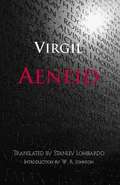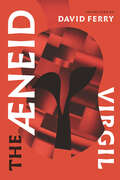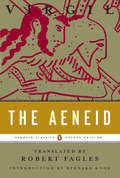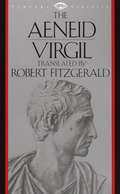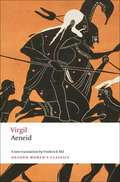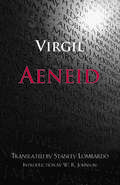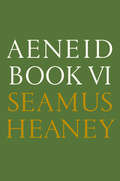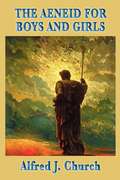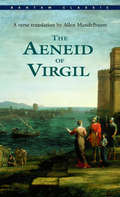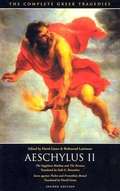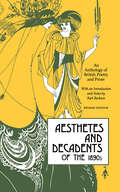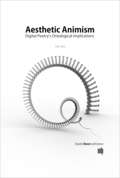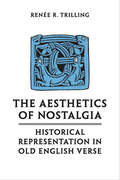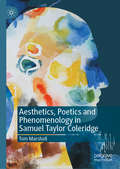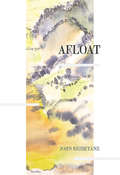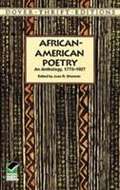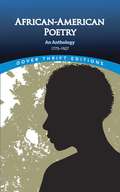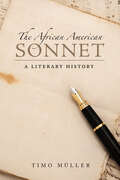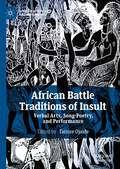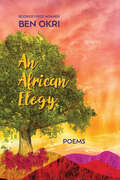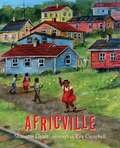- Table View
- List View
The Aeneid
by VirgilThe Aeneid recounts the story of Rome's legendary origins from the ashes of Troy and proclaims her destiny of world dominion. This optimistic vision is accompanied by an undertow of sadness at the price that must be paid in human suffering to secure Rome's future greatness. The tension between the public voice of celebration and the tragic private voice is given full expression both in the doomed love of Dido and Aeneas, and in the fateful clash between the Trojan leader and the Italian hero. Translated by Stanley Lombardo.
The Aeneid
by David Ferry VirgilIn 2012, David Ferry capped a long career as a poet with a National Book Award, given in honor of his book Bewilderment: New Poems and Translations. But he had no interest in resting on his laurels. In fact, he was in the middle of the most ambitious poetic project of his life. Six years earlier, at age eighty-two, he had embarked on a complete translation of one of the foundational works of Western culture: Virgil’s Aeneid. Now we have it, and it is a glorious thing. Ferry has long been known as perhaps the foremost contemporary translator of Latin poetry, his translations of Virgil’s Eclogues and Georgics having established themselves as much-admired standards. He brings to the Aeneid the same genius, rendering Virgil’s formal, metrical lines into an English that is familiar and alive. Yet in doing so, he surrenders none of the feel of the ancient world that resonates throughout the poem and gives it the power that has drawn readers to it for centuries. In Ferry’s hands, the Aeneid becomes once more a lively, dramatic poem of daring and adventure, of love and loss, devotion and death. Never before have Virgil’s twin gifts of poetic language and fleet storytelling been presented so powerfully for English-language readers. Ferry’s Aeneid will be a landmark, a gift to longtime lovers of Virgil and the perfect entry point for new readers. “I sing of arms and the man . . . ” The epic journey, from the fall of Troy to the founding of Rome, is ready to begin. Join us.
The Aeneid
by Virgil Robert Fagles Bernard KnoxThe city of Troy has been ransacked by conquering Greeks and lies in smouldering ruins. A warrior, Aeneas, manages to escape from the ashes. He will go on to change the history of the world . . . The Aeneid tells the story of an epic seven year journey that sees Aeneas cross stormy seas, become entangled in a tragic love affair with Dido of Carthage, visit the world of the dead - all the way tormented by the vengeful Juno, Queen of the Gods - and finally reach Italy, where he will fulfil his destiny: to found the Roman people. A sweeping epic of arms and heroism, dispossession and defeat, and a searching portrait of a man caught between love, duty and fate, The Aeneid brings to life a whole human world of passion, nobility and courage. This is the much-anticipated new version of Virgil's epic poem from the translator of the Odyssey and the Iliad. With this stunning modern verse translation Robert Fagles reintroduces the Aeneid to a whole new generation, and completes the classical triptych at the heart of Western civilization. It retains all of the gravitas and humanity of the original, as well as its powerful blend of poetry and myth. With an illuminating introduction to Virgil's world from noted scholar Bernard Knox, this new Aeneid gives a vibrant, contemporary voice to the literary achievement of the ancient world.
The Aeneid
by Virgil Robert FitzgeraldVirgil's great epic transforms the Homeric tradition into a triumphal statement of the Roman civilizing mission. Translated by Robert Fitzgerald.
Aeneid
by Frederick Ahl VirgilFrederick Ahl's new translation captures the excitement, poetic energy, and intellectual force of the original in a way that has never been done before. Ahl has used a version of Virgil's ancient hexameter, a swift-moving six-beat line varying between twelve and seventeen syllables, to reproduce the original poetry in a thrillingly accurate and engaging style. This is anAeneidthat the first-time reader can grasp and enjoy, and whose rendition of Virgil's subtleties of thought and language will enthrall those already familiar with the epic. Unlike most translators, Ahl has chosen to retain Virgil's word-play, the puns and anagrams and other instances of the poet's ebullient wit. "Like Shakespeare and the Greek tragedians, Virgil grasped that humor and earnestness are not mutually exclusive in art any more than they are in life. One should read theAeneidnot in solemn homage, but for enjoyment. " Enhanced by Elaine Fantham's Introduction, Ahl's comprehensive notes and an invaluable indexed glossary, this lively new translation brings readers closer to the original and the myriad enjoyments to be found there.
Aeneid: Books X-xii; Edited With Introduction And Notes (classic Reprint) (Hackett Classics)
by Virgil W. R. Johnson Stanley LombardoLong a master of the crafts of Homeric translation and of rhapsodic performance, Stanley Lombardo now turns to the quintessential epic of Roman antiquity, a work with deep roots in the Homeric tradition. With characteristic virtuosity, he delivers a rendering of the Aeneid as compelling as his groundbreaking translations of the Iliad and the Odyssey, yet one that--like the Aeneid itself--conveys a unique epic sensibility and a haunting artistry all its own.W. R. Johnson's Introduction makes an ideal companion to the translation, offering brilliant insight into the legend of Aeneas; the contrasting roles of the gods, fate, and fortune in Homeric versus Virgilian epic; the character of Aeneas as both wanderer and warrior; Aeneas' relationship to both his enemy Turnus and his lover Dido; the theme of doomed youths in the epic; and Virgil's relationship to the brutal history of Rome that he memorializes in his poem.A map, a Glossary of Names, a Translator's Preface, and Suggestions for Further Reading are also included.
The Aeneid
by Robert Fitzgerald VirgilVirgil's great epic transforms the Homeric tradition into a triumphal statement of the Roman civilizing mission. Translated by Robert Fitzgerald.
Aeneid Book VI: A New Verse Translation
by Seamus HeaneyA masterpiece from one of the greatest poets of the century. In a momentous publication, Seamus Heaney's translation of Book VI of the Aeneid, Virgil's epic poem composed sometime between 29 and 19 BC, follows the hero, Aeneas, on his descent into the underworld. In Stepping Stones, a book of interviews conducted by Dennis O'Driscoll, Heaney acknowledged the significance of the poem to his writing, noting that "there's one Virgilian journey that has indeed been a constant presence, and that is Aeneas's venture into the underworld. The motifs in Book VI have been in my head for years - the golden bough, Charon's barge, the quest to meet the shade of the father." In this new translation, Heaney employs the same deft handling of the original combined with the immediacy of language and sophisticated poetic voice as was on show in his translation of Beowulf, a reimagining which, in the words of James Wood, "created something imperishable and great that is stainless - stainless, because its force as poetry makes it untouchable by the claw of literalism: it lives singly, as an English language poem."
The Aeneid for Boys and Girls
by Alred J. ChurchFollow Aeneid as he flees a burning Troy with his family and sets out on a dangerous journey to found what will one day become The Roman Empire. Thrill with him as he gets caught up in conflicts between the gods, all the while striving to complete his own grand destiny. Virgil intended this book to be a sequel to the Iliad and the Odyssey, and as such it takes up with events just after the finish of the Odyssey. Inscribed here are myths and legends and tales of bravery destined to last for all time.
The Aeneid of Virgil: With A Translation (classic Reprint)
by Virgil Allen MandelbaumAeneas flees the ashes of Troy to found the city of Rome and change forever the course of the Western world--as literature as well. Virgil's Aeneid is as eternal as Rome itself, a sweeping epic of arms and heroism--the searching portrait of a man caught between love and duty, human feeling and the force of fate--that has influenced writers for over 2,000 years. Filled with drama, passion, and the universal pathos that only a masterpiece can express. The Aeneid is a book for all the time and all people. (From the Paperback edition.)
Aeschylus II: The Suppliant Maidens, The Persians, Seven against Thebes, Promethus Bound (The Complete Greek Tragedies #2) (2nd edition)
by David Grene Richmond Lattimore AeschylusThis volume contains the other four plays of Aeschylus not included in Richmond Lattimore's version of the Oresteia. With these two volumes a complete English Aeschylus is before the reader.
Aesthetes and Decadents of the 1890s: An Anthology of British Poetry and Prose
by Karl BecksonThe Aesthetic and Decadent Movement of the late 19th century spawned the idea of "Art for Art's Sake," challenged aesthetic standards and shocked the bourgeosie. From Walter Pater's study, "The Renaissance to Salome, the truly decadent collaboration between Oscar Wilde and Aubrey Beardsley, Karl Beckson has chosen a full spectrum of works that chronicle the British artistic achievement of the 1890s. In this revised edition of a classic anthology, "The Ballad of Reading Gaol" has been included in its entirety; the bibliography has been completely updated; Professor Beckson's notes and commentary have been expanded from the first edition published in 1966. The so-called Decadent or Aesthetic period remains one of the most interesting in the history of the arts. The poetry and prose of such writers as Yeats, Wilde, Symons, Johnson, Dowson, Barlas, Pater and others are included in this collection, along with sixteen of Aubrey Beardsley's drawings.
Aesthetic Animism: Digital Poetry's Ontological Implications
by David Jhave JohnstonA poetics appropriate to the digital era that connects digital poetry to traditional poetry's concerns with being.This book offers a decoder for some of the new forms of poetry enabled by digital technology. Examining many of the strange technological vectors converging on language, it proposes a poetics appropriate to the digital era while connecting digital poetry to traditional poetry's concerns with being (a.k.a. ontological implications). Digital poetry, in this context, is not simply a descendent of the book. Digital poems are not necessarily “poems” or written by “poets”; they are found in ads, conceptual art, interactive displays, performative projects, games, or apps. Poetic tools include algorithms, browsers, social media, and data. Code blossoms into poetic objects and poetic proto-organisms.Introducing the terms TAVs (Textual-Audio-Visuals) and TAVITS (Textual-Audio-Visual-Interactive), Aesthetic Animism theorizes a relation between scientific method and literary analysis; considers the temporal implications of animation software; and links software studies to creative writing. Above all it introduces many examples of digital poetry within a playful yet considered flexible taxonomy. In the future imagined here, digital poets program, sculpt, and nourish immense immersive interfaces of semi-autonomous word ecosystems. Poetry, enhanced by code and animated by sensors, reengages themes active at the origin of poetry: animism, agency, consciousness. Digital poetry will be perceived as living, because it is living.
Aesthetic Poetry
by Walter PaterTHE "aesthetic" poetry is neither a mere reproduction of Greek or medieval poetry, nor only an idealisation of modern life and sentiment. <P> <P> The atmosphere on which its effect depends belongs to no simple form of poetry, no actual form of life. Greek poetry, medieval or modern poetry, projects, above the realities of its time, a world in which the forms of things are transfigured. Of that transfigured world this new poetry takes possession, and sublimates beyond it another still fainter and more spectral, which is literally an artificial or "earthly paradise."
The Aesthetics of Nostalgia: Historical Representation in Old English Verse
by Renee R. TrillingHeroic poetry was central to the construction of Anglo-Saxon values, beliefs, and community identity and its subject matter is often analyzed as a window into Anglo-Saxon life. However, these poems are works of art as well as vehicles for ideology. Aesthetics of Nostalgia reads Anglo-Saxon historical verse in terms of how its aesthetic form interacted with the culture and politics of the period. Examining the distinctive poetic techniques found in vernacular historic poetry, Renée R. Trilling argues that the literary construction of heroic poetry promoted specific kinds of historical understanding in early medieval England, distinct from linear and teleological perceptions of the past. The Aesthetics of Nostalgia surveys Anglo-Saxon literary culture from the age of Bede to the decades following the Norman Conquest in order to explore its cultural impact through both its content and its form.
Aesthetics, Poetics and Phenomenology in Samuel Taylor Coleridge
by Tom MarshallThis book re-evaluates the philosophical status of Samuel Taylor Coleridge by providing an extended comparison between his work and the phenomenological theory of Edmund Husserl. Examining Coleridge’s accounts of the imagination, perception, poetic creativity and literary criticism, it draws a systematic and coherent structure out of a range of Coleridge’s philosophical writing. In addition, it also applies the principles of Coleridge’s philosophy to an interpretation of his own poetic output.
Afloat
by John ReibetanzAfloat, John Reibetanz's eighth collection of poetry, focuses on water in many manifestations. The centerpiece, a sequence on the Three Gorges Dam and its cultural and environmental implications, brings ancient Chinese sources (Meng Chiao and the painter Dong Yuan) together with modern ones (Edward Burtynsky's photographs and violent video games) to create an elegy that is moving and meditative. Although water is everywhere present as a subject, it is song that provides the motivating power, the vehicle of longing that animates the book. "We thirst for song"—the closing words of the Lament for the Gorges sequence—could really serve as the book's epigraph. This is poetry exercising its full range of possible functions (to observe, to enquire, to elegize, to imagine, to think, to commemorate, to yearn and to feel), all in the service of that "thirst for song."
Aforismos
by Leonardo Da VinciAforismos Leonardo Da Vinci Aforismos ofrece al lector una amplia y diversa colección de observaciones, pensamientos y máximas que recopilan el conocimiento e inteligencia de un genio como Leonardo da Vincicon su minucioso lenguaje descriptivo. "Pero la pintura tiene maravillosos artificios y sutilìsimas especulaciones que faltan a la escultura, la cual es de muy menguado discurso."
African-American Poetry: An Anthology 1773-1927
by Joan R. ShermanRich selection of 74 poems ranging from the religious and moral verse of Phillis Wheatley Peters (ca. 1753-1784) to 20th-century work of Langston Hughes and Countee Cullen. Other contributors include James Weldon Johnson, Paul Laurence Dunbar, many others. Indispensable for students of the black experience in America and any lover of fine poetry. Includes 4 selections from the Common Core State Standards Initiative: "I, Too, Sing America," "Lift Every Voice and Sing," "Yet Do I Marvel," and "On Being Brought from Africa to America. "
African-American Poetry: An Anthology, 1773-1927 (Dover Thrift Editions)
by Joan R. ShermanIn the 19th century, abolitionist and African-American periodicals printed thousands of poems by black men and women on such topics as bondage and freedom, hatred and discrimination, racial identity and racial solidarity, along with dialect verse that mythologized the Southern past. Early in the 20th century, black poets celebrated race consciousness in propagandistic and protest poetry, while World War I helped engender the outpouring of African-American creativity known as the "Harlem Renaissance."The present volume spans this wealth of material, ranging from the religious and moral verse of Phillis Wheatley Peters (ca. 1753-1784) to the 20th-century sensibilities of Langston Hughes and Countee Cullen. Also here are works by George Moses Horton, Frances Ellen Watkins Harper, Alberry Alston Whitman, Henrietta Cordelia Ray, Daniel Webster Davis, Mary Weston Fordham, James Weldon Johnson, Paul Laurence Dunbar, and many more.Attractive and inexpensive, this carefully chosen collection offers unparalleled insight into the hearts and minds of African-Americans. It will be welcomed by students of the black experience in America and any lover of fine poetry.Includes 4 selections from the Common Core State Standards Initiative: "I, Too, Sing America," "Lift Every Voice and Sing," "Yet Do I Marvel," and "On Being Brought from Africa to America."
The African American Sonnet: A Literary History (Margaret Walker Alexander Series in African American Studies)
by Timo MüllerSome of the best known African American poems are sonnets: Claude McKay's "If We Must Die," Countee Cullen's "Yet Do I Marvel," Gwendolyn Brooks's "First fight. Then fiddle." Yet few readers realize that these poems are part of a rich tradition that formed after the Civil War and comprises more than a thousand sonnets by African American poets. Paul Laurence Dunbar, Jean Toomer, Langston Hughes, Margaret Walker, and Rita Dove all wrote sonnets.Based on extensive archival research, The African American Sonnet: A Literary History traces this forgotten tradition from the nineteenth century to the present. Timo Müller uses sonnets to open up fresh perspectives on African American literary history. He examines the struggle over the legacy of the Civil War, the trajectories of Harlem Renaissance protest, the tensions between folk art and transnational perspectives in the thirties, the vernacular modernism of the postwar period, the cultural nationalism of the Black Arts movement, and disruptive strategies of recent experimental poetry.In this book, Müller examines the inventive strategies African American poets devised to occupy and reshape a form overwhelmingly associated with Europe. In the tightly circumscribed space of sonnets, these poets mounted evocative challenges to the discursive and material boundaries they confronted.
African Battle Traditions of Insult: Verbal Arts, Song-Poetry, and Performance (African Histories and Modernities)
by Tanure OjaideThis book explores the “battles” of words, songs, poetry, and performance in Africa and the African Diaspora. These are usually highly competitive, artistic contests in which rival parties duel for supremacy in poetry composition and/or its performance. This volume covers the history of this battle tradition, from its origins in Africa, especially the udje and halo of the Urhobo and Ewe respectively, to its transportation to the Americas and the Caribbean region during the Atlantic slave trade period, and its modern and contemporary manifestations as battle rap or other forms of popular music in Africa. Almost everywhere there are contemporary manifestations of the more traditional, older genres. The book is thus made up of studies of contests in which rivals duel for supremacy in verbal arts, song-poetry, and performance as they display their wit, sense of humor, and poetic expertise.
An African Elegy: Poems
by Ben OkriThis moving poetry collection from the Booker Prize–winning author finds strength and hope while reflecting on the complex issues that have burdened Africa.First published in 1992, Ben Okri&’s remarkable debut collection features poems that are now considered classics and taught in schools and universities worldwide. Here he plays with the mystique of the African continent, countering simplistic narratives of suffering that have been imposed on it with vibrant, nuanced portraits of the traditions and resilience of African peoples. An invaluable window onto Okri&’s experiences as a Nigerian immigrant to the United Kingdom and as a writer discovering his calling, these poems also speak to universal truths about love, injustice, and the search for meaning.
The African Prayer Book
by Desmond TutuThis book contains a collection of prayers from a variety of traditions in Africa. They are organized according to category or usage--devotional, hymns, etc.--and their sources range from African folk poems to prayers from Church fathers such as St. Augustine.
Africville
by Shauntay GrantWinner of the Lillian Shepherd Memorial Award for Excellence in IllustrationFinalist for a Governor General’s Literary Award, Young People’s Literature – Illustrated BooksFinalist for a Ruth and Sylvia Schwartz Children’s Books AwardWhen a young girl visits the site of Africville, in Halifax, Nova Scotia, the stories she’s heard from her family come to mind. She imagines what the community was once like —the brightly painted houses nestled into the hillside, the field where boys played football, the pond where all the kids went rafting, the bountiful fishing, the huge bonfires. Coming out of her reverie, she visits the present-day park and the sundial where her great- grandmother’s name is carved in stone, and celebrates a summer day at the annual Africville Reunion/Festival.Africville was a vibrant Black community for more than 150 years. But even though its residents paid municipal taxes, they lived without running water, sewers, paved roads and police, fire-truck and ambulance services. Over time, the city located a slaughterhouse, a hospital for infectious disease, and even the city garbage dump nearby. In the 1960s, city officials decided to demolish the community, moving people out in city dump trucks and relocating them in public housing.Today, Africville has been replaced by a park, where former residents and their families gather each summer to remember their community.Key Text Featureshistorical contextreferencesCorrelates to the Common Core State Standards in English Language Arts:CCSS.ELA-LITERACY.RL.K.6With prompting and support, name the author and illustrator of a story and define the role of each in telling the story.CCSS.ELA-LITERACY.RL.1.3Describe characters, settings, and major events in a story, using key details.CCSS.ELA-LITERACY.RL.1.4Identify words and phrases in stories or poems that suggest feelings or appeal to the senses.CCSS.ELA-LITERACY.RL.1.7Use illustrations and details in a story to describe its characters, setting, or events.
